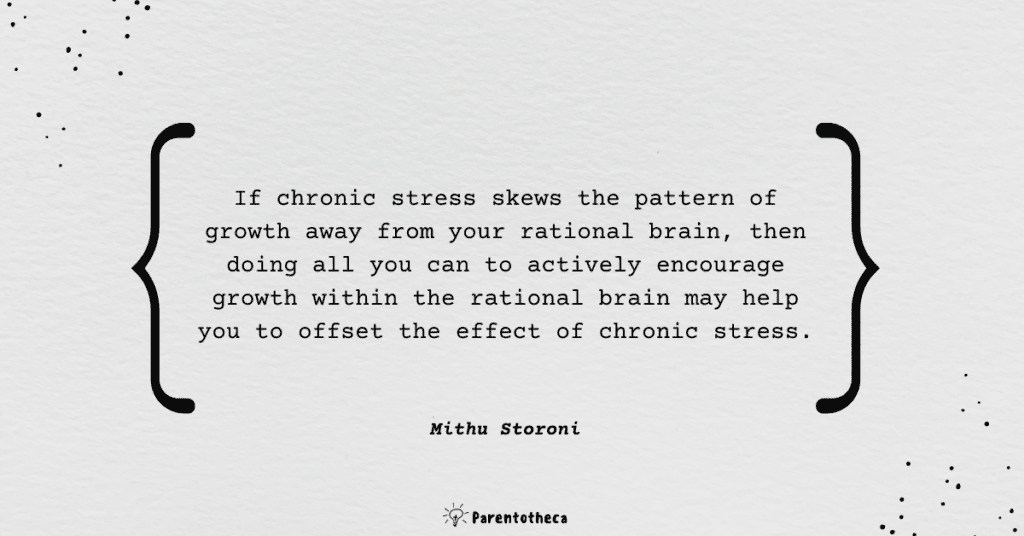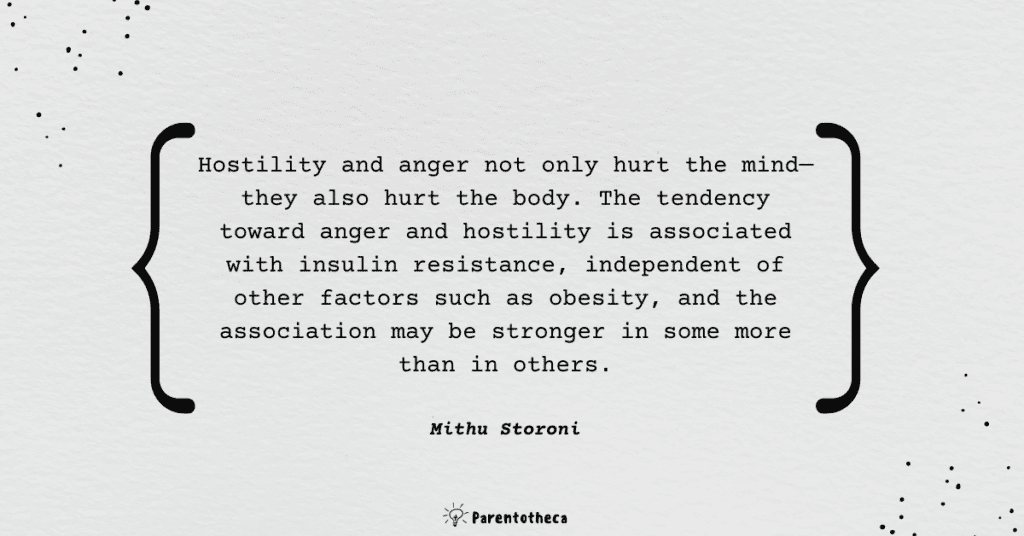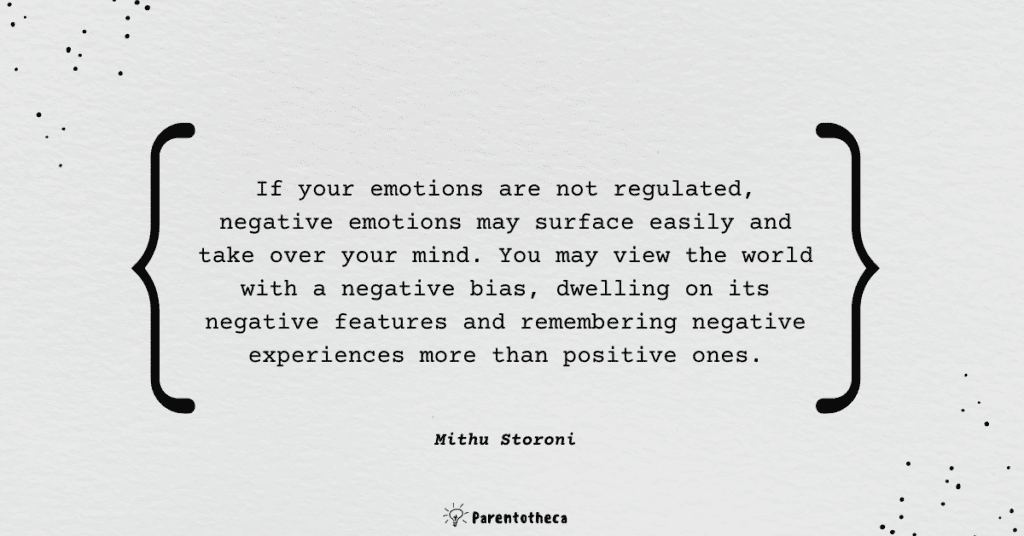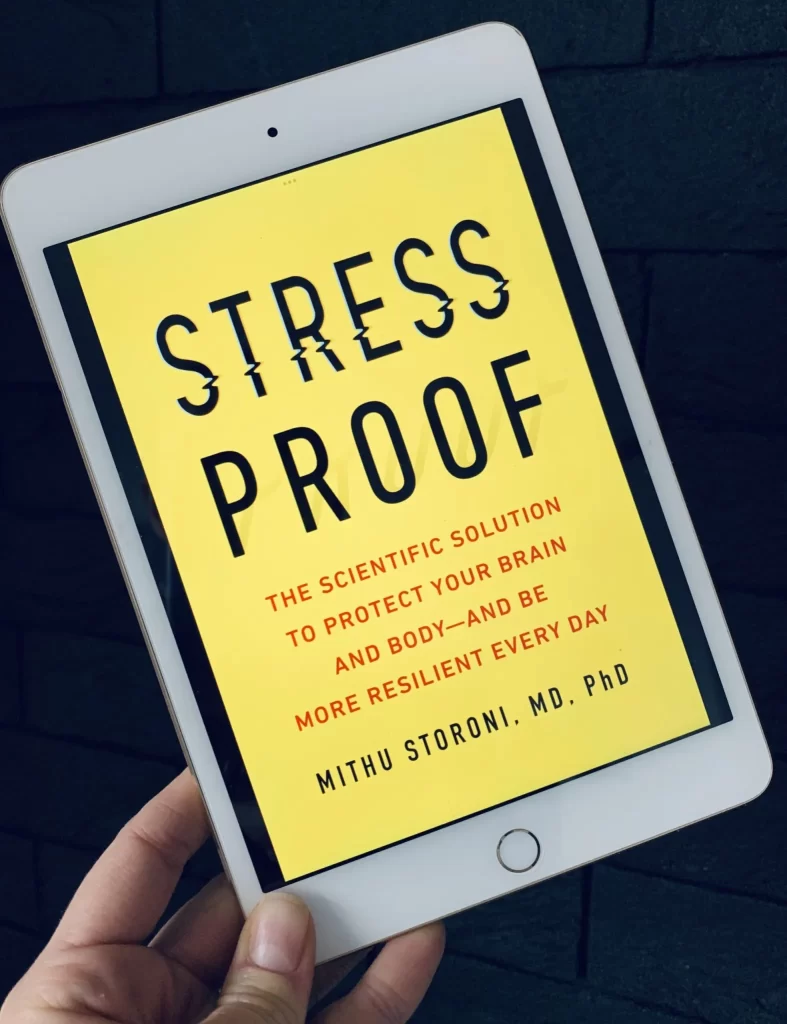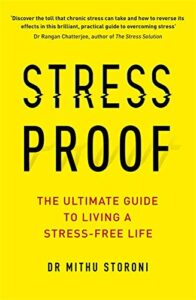 Stress-Proof
Stress-Proof
The ultimate guide to living a stress-free life
Mithu Storoni
Yellow Kite (10 Jan. 2019)
About the author
Mithu Storoni is a University of Cambridge-trained medical doctor, certified in Ophthalmology, and also holds a PhD in Neuro-ophthalmology. She has undertaken research in Neuro-ophthalmology and Perceptual Neuroscience at Cambridge, in London and at Harvard Medical School. Storoni explores how chronic stress impacts mental, physical, and brain health.
About the book:
“It became apparent to me that it wasn’t so much the power of the mind, as the power of looking after the mind that seemed to be the protagonist. I wasn’t thinking myself better; I was making my mind’s baseline state healthier by training it, feeding it, nurturing it, and resting it. When the mind is in its optimal state, it reacts differently. It is more resilient in the face of stress. It heals faster after a trauma. It thinks constructive thoughts and views the world rationally. It raises the threshold for pain perception, bolsters the immune system, and slows the process of any disease. It truly makes us more stress-proof.”
After reading The Thriving Child by William Stixrud and Ned Johnson and Help Your Child Deal With Stress – and Thrive by Stuart Shanker, I really wanted to dive deeper into the scientific research on stress. In particular, I was looking for a kind of playbook with practical tips on how to manage stress more efficiently.
Stress-Proof caught my attention with its subtitle: “The Ultimate Guide on Living a Stress-Free Life.” I read it immediately, and it was exactly what I needed! Greatly structured, full of science and packed with practical tips.
In Stress-Proof, Dr Storoni draws on cutting-edge research and teaches us how we can all boost our resilience and become stress-proof. I personally really enjoyed the book, especially Dr Storoni’s multifaceted approach to stress and actionable advice in each chapter.
It’s a quick read, and I recommend the book to anyone looking for a practical hands-on guide on how to manage stress efficiently and how to protect yourself and your loved ones from chronic stress.
The book is packed with great ideas and practical strategies, and in these notes, we’ll cover just a few of our favourite ideas. Definitely grab the book for more.
Let’s dive in.
Key insights:
Humans, eggs and stress
“A newly hatched egg, underneath its hard shell, is runny and free. It goes through drastic change when you surround it with heat. There is little to notice on the outside while the inside is altered beyond recognition. We humans are very much like eggs. When plunged into the heat of our lives, our shells may remain the same, but our brains undergo structural change. We call the heat “stress.” […]
This would be a sorry state of affairs where is not for a recent discovery. It is in fact possible to “unboil” an egg. […]
Just as one can “unboil” an egg, one may also be able to “unboil” the brain. This book takes the process of stress and works it backward so, like unboiling an egg, you can “undo” and try to prevent some of the changes that take place in your brain and body when you are placed under the beam of the thoroughly modern and potentially damaging walkie-talkie building that is your daily life.”
Firstly, did you know you can actually unboil an egg? That came as a surprise to me, and I even googled this research! Check it out if you are curious ☺
Anyway, the point that Dr Storoni makes with this metaphor is that although chronic stress makes physical changes to our brain and body, it is possible to reverse them. How? By making small and consistent changes to our lifestyle, nutrition and behaviour – building stress-proof habits.
Let’s have a quick look at the seven routes to becoming stress-proof.
7 routes to become stress-proof
In the book, Dr Storoni walks us through the basics of how our brain operates and how it reacts to stress. I’ll skip the details in these notes – grab the book for more if you are interested.
So main idea here: while modern life makes it nearly impossible to avoid stress, our key focus should be on preventing it from turning into chronic toxic stress. That means we need to get serious about building our stress resilience.
Dr Storoni presents a holistic approach to stress management and suggests that we need to tackle seven areas to increase our tolerance to stress. Here is a brief overview:
- Bolster Emotional Regulation: when our emotional brain is too involved, it triggers stress response more often than we need. The best what you can do is to train your brain to improve pre-frontal control (e.g. through mindfulness, meditation, yoga and general self-regulation techniques). The best practical strategies I’ve seen so far are in The Whole Brain Child by Dan Siegel and Dina Pyne-Bryson, and in Help Your Child Deal With Stress – and Thrive by Stuart Shanker – definitely check them out.
- Get Runaway Cortisol Under Control: when we are under chronic stress, our stress hormone cortisol is either too high or too low, which causes harm to our brain. This can be regulated through specific modifications to lifestyle and behaviour (e.g. exercising regularly in the morning, going for a walk when you feel stressed, listening to binaural beats, and boosting your oxytocin level).
- Foster Growth in the Rational Brain: chronic stress impedes crucial processes in our rational brain – it affects our memory, learning abilities, strategic thinking and all the other important stuff. If we proactively stimulate growth and activity in our rational brain, we may be able to counter the effects of chronic stress. Some strategies include environmental enrichment, physical exercise, regular visits to the sauna and/or exposure to cold (e.g. cold shower, swimming in a cold lake, ice bath).
- Tune Up Your Body Clock: if our body clocks malfunction, our biochemical and physiological processes across the entire body go off-course. So our goal is to keep our main body clock tuned: optimizing our melatonin, getting a substantial amount of sleep, getting regular sun exposure, etc.
- Tame Chronic Inflammation: “Inflammation can interfere with synaptic plasticity and lead to inappropriate and aberrant synaptic connectivity”. So we should aim at minimizing baseline inflammation, reducing intestinal permeability and providing a buffer against stress-induced inflammation. Optimizing our nutrition is the key (more on that later);
- Modulate Insulin Resistance: if our glucose level is poorly regulated, our neurotransmission and synaptic plasticity are affected. Again, optimal nutrition and exercise are crucial here.
- Boost Motivation—Pleasure and Reward: “When your prefrontal cortex regulates your behavior, it modulates the circuits that process your sensations of pleasure, reward, and motivation. If this process malfunctions, your experience of pleasure can be adversely affected. Anhedonia can be brought on by chronic stress.” Yep, we need to experience pleasure to fight chronic stress. More on that later.
Although everyone would benefit from optimizing all 7 routes, every little helps. Dr Storoni writes:
“Imagine your stress-proof barrier as a brick wall. Every brick in that wall is important. One brick may look after the health of your gut, while another might tune the clocks that sit in your liver. Each brick brings benefits on an individual level, but it is when you coordinate all the bricks and synchronize their individual powers to create a solid wall that the effect becomes formidable. Protecting yourself against stress requires many small changes. The small changes have a synergistic effect when implemented together. Harnessing their synergy creates a powerful fortification against stress.”
If you need some valuable ideas on creating good habits in life, I cannot recommend enough Atomic Habits by James Clear – check it out.
Question for you – how stressed are you? Which of the strategies above do you think would make the biggest difference for you?
Five strategies to employ immediately after a stressful experience
“1. Don’t dwell.
Do something intense, tiring, and distracting immediately afterward.
2. Disengage your emotional brain.
Do something that envelops your rationality such as playing a game that involves working memory, spatial reasoning, or analysis. Your activity must be interesting and demanding enough for you to be absorbed. Your mind must not wander.
3. Exercise.
Exercise at or below 40 percent VO2 max.
Go for a brisk walk around the block.
Listen to music while you run or walk to its rhythm.
4. Breathe strategically. Slow your breathing rate down for fifteen minutes, aiming for about six to seven breaths per minute.
5. Use what you hear, see, and smell.
Listen to delta or theta frequency binaural beats for fifteen minutes.”
Imagine you just went through a very stressful experience. Guess what the WORSE possible way to distress is? Dump yourself on a couch in front of a TV! To make it even worse, get yourself a beer and some snacks. Boom!
To fight stress, we need to be PROACTIVE.
Assisting others mindset
“Instead of entering with a mindset intent on elevating yourself above others, switch to a mindset of assisting others.
[…]
This strategy may work because needing to prove yourself is a defensive stance. It is you against them. The need for defense pushes you toward vigilance and stress. Seeing others as part of your own team convinces you that you are part of a tribe—and that you have tribal protection. Here, it is you with them. You no longer need to feel defensive. There is no need to be stressed.”
Yep. I guess both employers and employees could benefit significantly from changing people’s mindsets.
So if you feel overwhelmed at work, here are a couple of tips from Dr Storoni:
- Train yourself to see others as players on the same team rather than as rivals.
- Constantly remind yourself of the aims you share with others, and focus on them.
- Create a ritual of helping others, just for the sake of it.
That also made me think about a stereotypical “stressed parent” – what if shifting our mindset to a bigger goal of assisting a child may reduce our perceived stress load? That’s not “a parent against a child”. It’s “a parent with a child” mindset.
Binaural bits and emotional regulation
“Listening to delta frequency binaural beats may help with emotional regulation, although more studies are needed. You might wish to play around with other frequencies of binaural beats to see if others work better for you.”
Binaural beats are probably one of the most popular brain hacks today. And although the research in support of binaural beats is still in its infancy, you can experiment with listening to delta and theta binaural beats to help you with emotional regulation.
P.S.: I first heard of the research on binaural beats from Andrew Huberman’s podcast – I even tried this 40hz binaural beats to boost my focus – worked great.
Boost perceived control
“If you think you are in control of a situation, it may stress you less and you will likely produce less cortisol.”
That totally resonates with William Stixrud and Ned Johnson’s wisdom in The Thriving Child – they claim a sense of control to be an antidote to stress.
So always focus on things you can control in a stressful situation. Even if it’s just your breath. You have the power to trick your brain into feeling less stressed.
An optimal daily routine
“MORNING
- Wake up and expose your eyes to morning light.
- Eat a substantial breakfast at the same time, every day.
- After breakfast, get some daylight for at least thirty minutes.
DAYTIME
- Try to get at least half an hour of daylight at three separate times of the day: after breakfast, at lunchtime, and in the afternoon.
- Exercise in the morning. If you can’t exercise in the morning, exercise in the afternoon.
EVENING
- Eat your evening meal as early as possible. Keep it small.
- Wear blue-blocking glasses.
- Use programs such as f.lux to reduce blue-light emissions from electronic devices.
- Dim your lights.
- Stop eating as you dim your lights.
- Avoid intense exercise.
- Avoid noisy television.
- Avoid excitement. Avoid scrolling through social media or watching things that make you react with anger or negativity.
- Avoid caffeinated drinks and alcohol.
AS YOU HEAD TO BED
- Switch off electronic devices.
- Read a real book.
- Take a hot bath.
- Keep your room cool and keep your feet warm.”
That’s a routine any neuroscientist would recommend. It helps to optimize your melatonin and take control of your body clock. That means better sleep, better health, better performance…and less stress!
I must say I don’t complain about long school runs anymore ☺ I see them now as a great way to become stress-proof! I just need to get better with my evening routine.
We also aim to have a morning walk with the boys daily – I definitely see the difference if they spend the entire day indoors.
Btw, again, I cannot recommend enough Huberman Lab podcast! It is hosted by an amazing neuroscientist (and incredible communicator) from Stanford School of Medicine – Andrew Huberman. I think it’s the best source of information if you are interested in learning how to use cutting-edge research in neuroscience to live a better life.
An optimal nutrition
Scientists and wellness experts are probably sick and tired of repeating how optimal nutrition is important for our health. But guess what? It is also crucial for becoming stress-proof. Dr Storoni talks about nutrition in different chapters of the book, but here are the main points:
- Eat oatmeal (that’s actually our favourite breakfast!)
- Minimize alcohol consumption;
- Take supplements: Vitamin D, fish oil, and B vitamins (they work as a team with fish oil);
- Eat 300g of natural plain probiotic yoghurt or fermented dairy a day;
- Add turmeric to food (or take turmeric with a quarter teaspoon of black pepper and with little fat – helps to reduce inflammation);
- Avoid processed food;
- Eat a wide selection of plant-derived sources of fibre every day;
- Reduce FODMAPs;
- Eat small portions of red meat;
- Avoid fried food;
- Practice intermittent fasting;
- Don’t saturate your meals with fat;
- Avoid any form of processed sugar and artificial sweeteners;
- Choose low GI starches.
And…aim for a 15-40 mins walk after each meal to improve your insulin dynamics!
P.S.: it resonates a lot with the nutrition advice from Dan Buettner’s amazing book The Blue Zones ☺
Do things that bring you pleasure
“…there is evidence that actively cultivating reward and pleasure in your daily life can protect you from chronic stress and its damaging effects on your reward circuit. As you become increasingly exhausted and time-poor, you may start shaving off commitments that you deem dispensable. Often, “non-essential” things, such as the things that you do purely for pleasure, are the first to go. If, when you fall under the daily grind of a stressful life, your want wanes, your obstacles will block your motivation. If you stop doing things that bring you pleasure, while living under chronic stress with a hyperactive emotional brain that keeps you immersed in negativity, your life will descend into a spiral of gloom. You must treat pleasure with the same importance with which you treat going to work or taking a shower, by allotting time for it every day. Never leave pleasure by the wayside or sacrifice it for “more important” things.”
That’s the bright side of hedonism. Feeling stressed? Make sure you make daily deposits into your Pleasure Bank Account and create your “pleasure habits”.
Take a moment and think – what gives you pleasure? Hot bath, a yoga class, playing board games – you choose. We need to find our way of PLAY to fight stress efficiently.
P.S.: That made me think of Jordan Peterson’s Rule Number 2: “Treat yourself like you are someone you are responsible for helping.” You are important.
Action steps for you:
- Foster optimism – consciously train yourself to focus your attention on positive features of your world when you feel tempted to focus on negative ones.
- Exercise to fight stress – ideally in the morning and outside.
- Deliberately do things that give you pleasure.
Quotes from the book:

